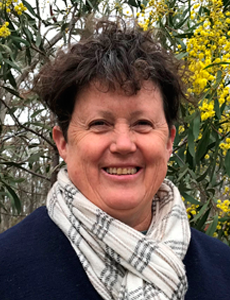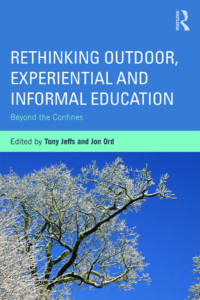JOEE 24 (3)
JOEE November 2021 Issue
The November 2021 issue of JOEE features five papers — four research studies and one book review — from international academics and researchers. In this issue, we feature two papers from Czech Republic and two from Australia. Articles look at: Outdoor Education and Becoming a Man; Making Meanings of Walking in Nature; How we address Gender Equity in OEE in Higher Ed; and Outdoor ed from accompanying Teachers’ Perspective. We also have a book review of Rethinking outdoor, experiential and informal education: Beyond the confines.
Reminder: To read these full articles you need to log-in to the OEA Digital Library
Link in the menu on the right (at the top) or near bottom if viewing on mobile device.
We love them anyway: outdoor environmental education programs from the accompanying teachers’ perspective
Jan Cincera (pic), Jan Zalesak, Miloslav Kolenaty, Petra Simonova & Bruce Johnson

The effect of the residential programs on developing the students’ environmental understanding, attitudes, and values remained secondary for the teachers. What teachers appreciated most was the application of experiential learning methods providing emotional experiences for the students. The paper discusses the possible reasons for such perceptions and the implications for practice.
Is outdoor and environmental education (in higher education) normal, weird, queering or…? Bagurrk, binaries and ‘saving the world’…or at least ‘making a difference’?
Lisa Hunter

Drawing on scholars in and outside the field she suggests that to address complex socio-ecological issues, this field needs to break its own doxa (opinions/beliefs), valuing such destruction, so that marginalised and emerging possibilities can be enabled. She argues that then OEE will demonstrate an ability to embody diversity, inclusion and an ecology that is at the same time sustainable AND changing, making a difference that really counts.
Outdoor education and becoming-man
Ivo Jirásek

This paper draws on phenomenological philosophy because it can open pathways to understanding different ways of being and becoming. It also suggests that there are needs which adolescent boys have which differ from those of adolescent girls.
Making meanings of walking with/in nature: embodied encounters in environmental outdoor education
Genevieve Blades

This study advances the literature in outdoor and environmental education research in three important ways (i) methodologically accessing the previous non-representational affects and meaning making of movement experiences in nature (ii) reveal numerous qualities and characteristics of bushwalking in three Australian scapes that, previously, have attracted little research and pedagogical insight (iii) offer an alternative to masculinist, commodified, instrumentalized ‘core’ walking practices dominant in outdoor education.
Rethinking outdoor, experiential and informal education: Beyond the confines by Tony Jeffs and Jon Ord — REVIEW
Ian A. Neville, College of Sport and Exercise Science, Victoria University, Footscray Park, Melbourne, VIC, Australia.

It features contributions from leading researchers and outdoor practitioners from a range of disciplines: health, sport, education, the environment and sustainability. According to Eric, , this book is a welcome addition to the generic research methods literature for undergraduates, postgraduates, and early career researchers. The structure and presentation of the book ensured the volume was easy to follow and usable. Each chapter is supported with key references signposting further reading, and the index made navigating the content user friendly. The book is set out in five parts guiding the reader through the initial considerations, positioning of the researcher, research design and methodology, researching ethically and opportunities for sharing and disseminating research


